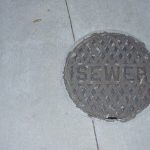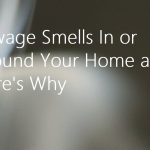Many people have pets in their homes, they are adorable companions, but they can get into a lot of trouble when you’re not looking. Aside from the usual pet related issues, there are possible problems that can be caused to the plumbing systems in your home. If these potential problems are not addressed, it can injure the pet and/or cause a great deal of damage. Plumbing problems can lead to water leaks, these can be expensive to fix, and prevention is better than the cure. In this article, we will look at four ways that you can pet-proof your plumbing systems.
- Protecting Your Plumbing Pipes
The main purpose of your plumbing system is to bring fresh water into your home and remove wastewater and waste. This requires a network of pipes that can be vulnerable to penetration by sharp teeth, beaks, and claws. So, when you start to think about pet-proofing your home, it’s a useful exercise to imagine how you would child-proof those same areas.
After all, even a larger dog is around the size of a child, so think about where they could reach and how they move around your home. If you have a cat, can they reach up high onto exposed plumbing pipes, and how do they act around them? A pet that likes to sleep or hang out on plumbing pipes can introduce weight and stress that could lead to a break and water leak.
Once you have an idea about the bigger picture, focus on specific areas where you can protect your plumbing pipes. Start by shielding pipes. This is especially important if the plumbing pipes are exposed. If there is any loose wiring, it needs to be tidied away and covered to deny access to curious pets. When the pipes are safely tucked away, it will prevent chewing that can occur during a biting phase or any separation anxiety that may occur.
- Protecting Your Drains
Most homeowners will have had a drain clog in their sinks, tubs, and shower stalls. This can be annoying, but many clogs can be fixed with a simple cup plunger or with a plumbing augur (snake). But, many of these clogs are entirely preventable if the material that causes them is removed from the wastewater entering the drain. This is where a drain guard is useful, and installing one in each drain will improve your plumbing systems.
Let’s face it, human hair in the drain can combine with soap scum and other materials to form a formidable drain clog that’s hard to remove. But, pet hair can be even worse, and every time you need to wash your pet, their fur or hair is going into the drain. Many pets need regular bathing, and they can shed hair at a prodigious rate at certain times of the year.
Installing a drain guard will catch most if not all of the pet hair, ensuring that the water continues to drain easily. But, if you find that drain clogs are still a problem after installing drain guards, consult a local professional plumber. Persistent drain clogs are often caused by underlying sewer line issues than need to be fixed.
- Keep the Toilet Lid Closed
For some reason, many pets are simply fascinated by toilet bowls, and if the toilet lid is up, they will investigate. Cat’s like to stare at the water, and dogs will often drink toilet water even if they have clean water available in their regular bowl. So, it’s important to keep the toilet lid closed when the toilet is not in use and ensure that your pets have access to fresh water at all times.
On the surface, it can be amusing to see pets interact with the toilet in these ways. But, the cleaners you use in your toilet are not safe to drink for you or your pets, and they can be harmful to their health. Any germs in the toilet bowl will get on their paws, and when they lick them later or clean themselves, they ingest the germs.
It’s also worth mentioning that an open toilet bowl during flushing will spray bacteria all over the bathroom. This will cover many surfaces, including any toothbrushes, soaps, and towels stored nearby. So, when you come to use these items, you may be brushing bacteria into your skin, hair, and teeth. For this reason alone, it’s a great idea to keep your toilet lid closed when you don’t need to use it.
- Get Your Pressure Valves Balanced
Every home plumbing system has pressure valves to control the flow of water. If these valves are not balanced, it can lead to water pressure drops due to fluctuations in the cold water supply. This may seem like a minor problem, but it can be dangerous in certain situations.
Most people enjoy a good level of water pressure in their homes, it makes showering more pleasurable, and we often feel fresher afterward. But, when water is delivered at high pressure, a fluctuation in the cold water supply can turn the water scalding hot in seconds. This can be very dangerous for adults taking a quick shower, but it’s especially dangerous if you’re rinsing off a child or pet at the time. Scalding water can hurt smaller children and pets badly in very little time, and this is why it’s important to get the pressure valves balanced by a professional plumber.
It’s also worth mentioning that excessively high water pressures also cause damage to plumbing pipes and fixtures. This leads to water leaks that may be hidden for some time, and water damage is expensive to fix. If you have a very high water pressure in your home, it’s a good idea to adjust it to a more manageable level. This will reduce the stress on your plumbing system, and you will save money on your water bill too.
If you’re interested in pet-proofing your plumbing, contact a
local certified plumber for expert help and advice.
By Giovanni Longo President Flood Brothers Plumbing
Giovanni Longo is a 3rd generation master plumber who has been practicing his craft and trade in the greater Los Angeles area for well over a decade and a half. A plumbing and hydraulics-engineering innovator, Giovanni’s particular world-class expertise focuses on dealing with challenging sewer system designs as well as resolving complex commercial and residential draining issues. As a certified Flood Mitigation expert, he is also well versed in a wide variety of water damage and remediation solutio





